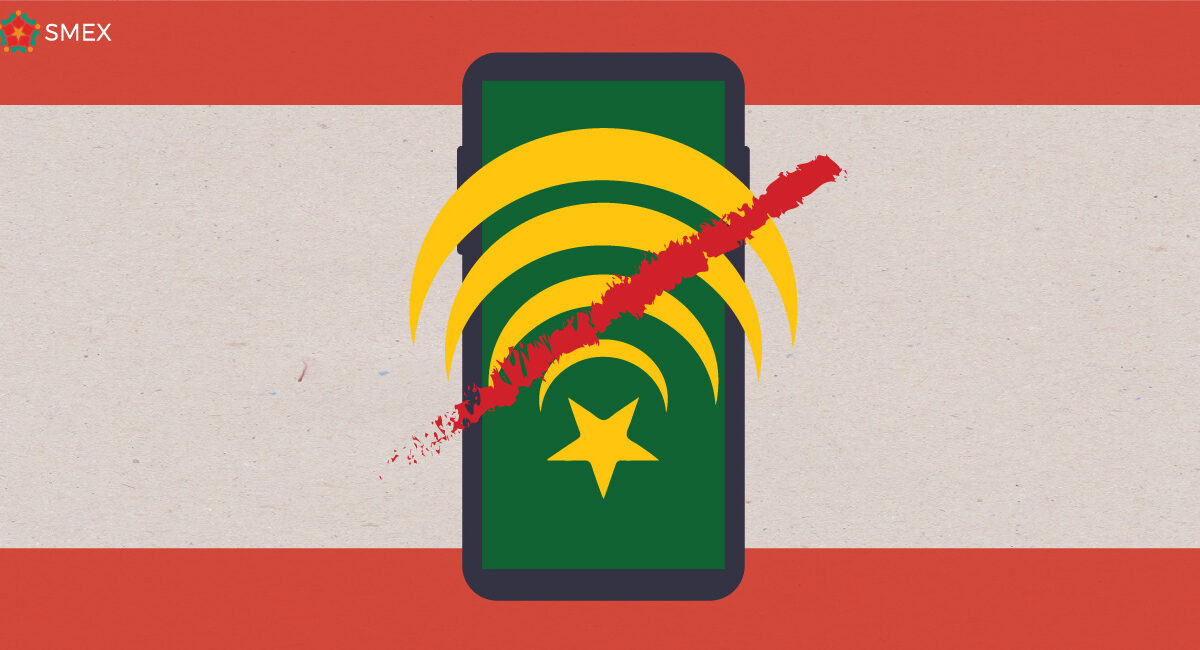Authorities in Mauritania have cut off mobile internet services since March 6, 2023, after four prisoners—classified as “terrorists” by the Interior Ministry—escaped from a jail in Nouakchott. They killed two guards and wounded two others as they fled.
The Mauritanian government should restore the internet immediately. Internet shutdowns result in significant losses to the national economy and limit freedom of expression. They allow state forces to commit human rights abuses in the absence of evidence and records to document violations.
The internet shutdown in Mauritania coincided with the search for escaped extremist prisoners, while internet services continued to operate on fixed lines (DSL). Soon enough, however, the shutdown spread throughout the country.
“Security trumps everything, and the internet was cut on mobile networks only for that very reason,” said the Mauritanian government spokesman, Minister of Equipment and Transport, El Nani Ould Ashrouga, following the cabinet meeting on Thursday, March 9. About restoring mobile internet, he explained that “this service will be restored whenever possible” and that authorities are aware of the “inconvenience caused by this interruption.”
“This statement is far from the truth, as the situation does not require such measures, even with the escape of four dangerous prisoners with death sentences,” responded Mauritanian journalist and activist Ahmed Ould Jeddou in a conversation with SMEX. “There are many countries witnessing disasters and wars, and they do not shut down the internet,” he added.
“In times of heightened social tension and unrest, internet access is more of a lifeline for people than ever,” reaffirmed Felicia Anthonio, #KeepItOn Campaign Manager at Access Now. “Stopping people from communicating with each other is unjustified and disproportionate; the government should change course immediately and restore access for all people.”
Ould Jeddou believes that authorities shut down the internet as a lazy and unnecessary measure, one which adversely complicates the situation: “This cut is not helpful, as it allows rumors to spread and deprives people of access to accurate information, at a time when people are trying to check in on each other after the incident, inside and outside Mauritania.”
In addition, internet shutdowns cause direct losses to citizens, as many taxi, transfer, communications, and other critical mobile applications stop functioning, explains Ould Jeddou to SMEX.
Mobile internet has been cut off in Mauritania before. In recent years, authorities have ordered telecommunications companies to shut down the internet during protests or baccalaureate and middle school exams.
In 2019, when people held protests expressing their concerns about the validity of the results of the presidential elections, authorities responded by cutting off mobile internet for days, before shutting down the internet entirely.
Mauritanian authorities also shut down the internet between 2017 and 2020 during exams, but refrained from reinstating this practice in 2021 and 2022, explained journalist Ahmed Ben Jeddou to SMEX.
Besides internet blocking, freedom of expression in the country is under pressure. In November 2021, the Mauritanian parliament adopted a law “to protect national symbols” that threatens freedom of expression on social media. A number of local, regional, and international civil society organizations have expressed “deep concern about the adoption of this law and the criminalizing of ‘offenses against the prestige of the state and the honor of the citizen.'” They feared that “if this law enters into effect, it will severely compromise freedom of expression in Mauritania.”
Use the hashtags #KeepItOn and #NoExamShutdown to report and discuss cases of internet shutdowns and to urge governments to refrain from cutting off communications—our human right.



